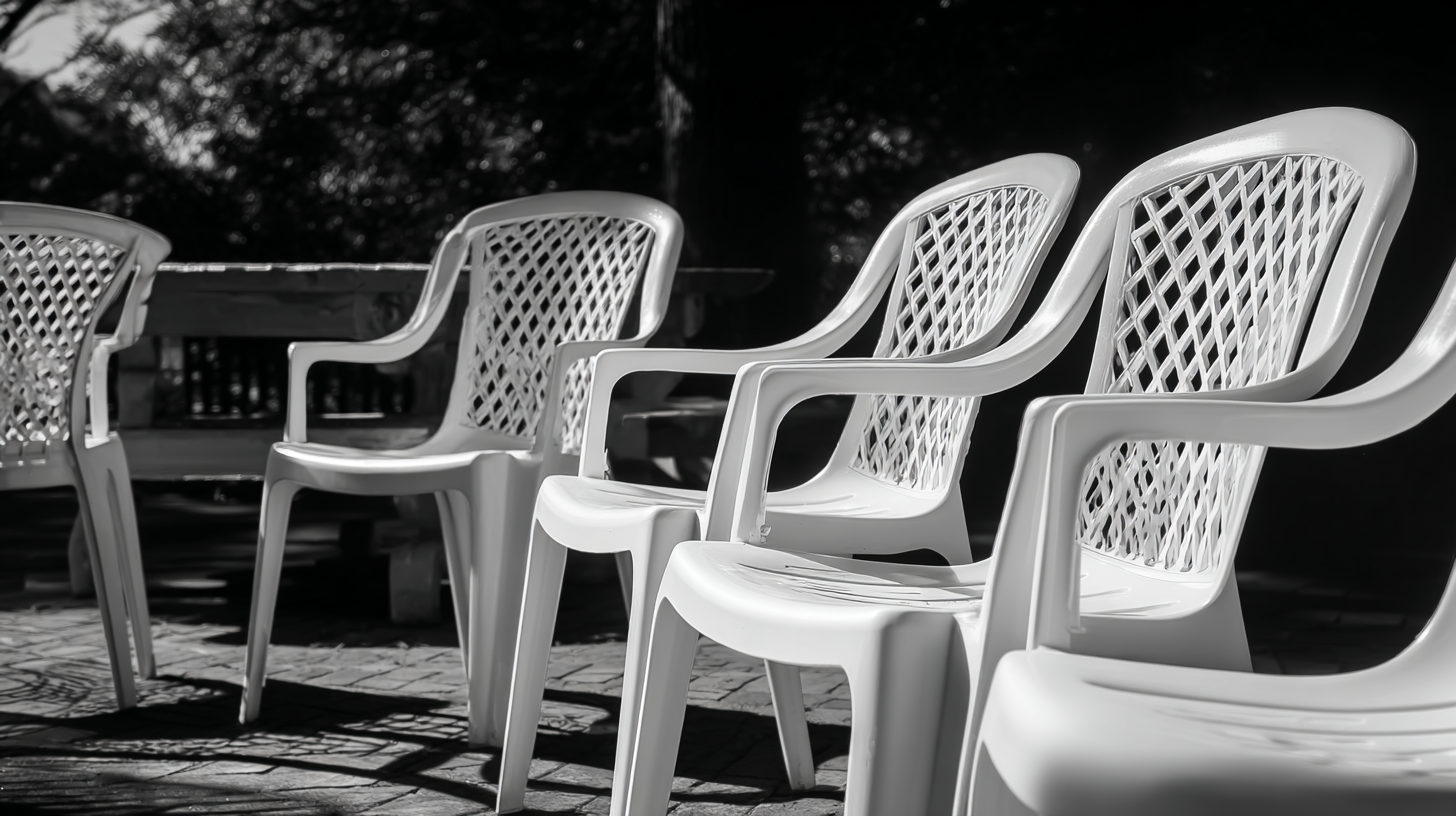Navigating Import and Export Certifications for Best Outdoor Chairs and How to Choose Compliant Products
In the competitive market of outdoor furniture, particularly with outdoor chairs, understanding and navigating import and export certifications is crucial for both manufacturers and consumers. According to recent industry reports, the outdoor furniture market is projected to reach USD 19.2 billion by 2027, reflecting a robust growth trajectory fueled by increasing consumer demand for high-quality, compliant products. However, the complexities surrounding certification requirements can present significant challenges, especially for businesses looking to expand their footprints globally. Issues such as varying regulations, safety standards, and environmental concerns often lead to compliance dilemmas, potentially hindering market access. Therefore, it is essential to grasp the nuances of these certifications to ensure that the outdoor chairs meet all necessary criteria, ultimately providing customers with safe, durable, and eco-friendly options.

Understanding Import and Export Certifications: A Key to Outdoor Furniture Compliance
Understanding import and export certifications is crucial for ensuring compliance in the outdoor furniture sector. As the demand for outdoor chairs grows, particularly in markets like the USA, Germany, and the UK, manufacturers and retailers must navigate the complex landscape of regulations that govern the import and export of these products. Certification such as FSC (Forest Stewardship Council) is essential, as it verifies that the materials used in the furniture meet sustainable and ethical sourcing standards. This not only helps companies comply with international trade regulations but also provides assurance to consumers about the environmental impact of their purchases.
Moreover, as seen in recent developments within Vietnam's forestry industry, there is a significant push to enhance competitiveness in meeting export targets. With an ambitious goal of USD 18 billion in exports by 2025, adherence to certifications and quality standards will be critical for Vietnamese manufacturers aiming to compete globally. Understanding these certifications can empower buyers to make informed decisions and promote sustainable practices within the furniture industry. As regulations evolve, staying informed is essential for ensuring compliance and sustaining market share.
Navigating Import and Export Certifications for Best Outdoor Chairs
Essential Certifications for Outdoor Chairs: What You Need to Know
When selecting outdoor chairs, understanding essential certifications is crucial to ensure safety, durability, and compliance. Outdoor furniture often faces challenging environmental conditions, making it imperative to choose products that meet specific standards. Look for certifications such as the ASTM (American Society for Testing and Materials) and ANSI (American National Standards Institute), which evaluate quality and performance. Chairs that carry these certifications are tested for resilience against weather elements, ensuring they can withstand sun, rain, and wind without compromising safety.

Another critical certification to consider is the FSC (Forest Stewardship Council) certification for wooden outdoor chairs. This indicates that the wood used is sourced sustainably, promoting responsible forest management. For upholstered outdoor chairs, checking for UV resistance certifications is essential, as it ensures the materials used can endure prolonged exposure to sunlight without fading or degrading. By focusing on these key certifications, you can make informed choices and enjoy outdoor furniture that not only complements your space but also meets safety and environmental standards.
Choosing the Right Outdoor Chairs: Compliance with Safety Standards
 When selecting outdoor chairs, ensuring compliance with safety standards is paramount. Outdoor furniture is exposed to various environmental elements, making it essential that these products meet specific durability and safety requirements. For instance, chairs made of materials resistant to rust, rot, and UV damage not only enhance their longevity but also ensure user safety. Products should adhere to industry standards set by regulatory bodies like the American National Standards Institute (ANSI) or the Consumer Product Safety Commission (CPSC), which provide guidelines on load capacity and material safety.
When selecting outdoor chairs, ensuring compliance with safety standards is paramount. Outdoor furniture is exposed to various environmental elements, making it essential that these products meet specific durability and safety requirements. For instance, chairs made of materials resistant to rust, rot, and UV damage not only enhance their longevity but also ensure user safety. Products should adhere to industry standards set by regulatory bodies like the American National Standards Institute (ANSI) or the Consumer Product Safety Commission (CPSC), which provide guidelines on load capacity and material safety.
In addition to material compliance, consider the manufacturing processes of the outdoor chairs. Look for manufacturers who prioritize environmentally friendly practices, which often coincide with higher safety standards. Certifications like GREENGUARD or FSC (Forest Stewardship Council) indicate that products have been tested for harmful emissions and come from responsibly managed forests, respectively. By choosing chairs that bear these certifications, consumers can enjoy peace of mind knowing they are making responsible and safe choices for their outdoor spaces.
How to Verify Certification Authenticity in the Furniture Industry
In the furniture industry, ensuring compliance with certifications is vital not only for consumer safety but also for maintaining market competitiveness. According to a report by the International Furniture and Wood Products Association, over 75% of customers consider certification authenticity a crucial factor when selecting products. This makes it essential for manufacturers and retailers to navigate the complexities of import and export certifications effectively.
To verify certification authenticity, one should start by examining the issuing body. Certifications from recognized organizations, such as the American National Standards Institute (ANSI) or the Forest Stewardship Council (FSC), carry more weight. It is advisable to request documentation and check for compliance with international standards, which report that over 60% of non-compliance issues arise from inadequate documentation.
Additionally, cross-referencing product information with established databases or directories can help confirm a certification's legitimacy. By following these guidelines, retailers can not only ensure that they are selling compliant outdoor chairs but also build trust with their customers.
Trends in Outdoor Chair Compliance: Preparing for the Future
As outdoor furniture continues to grow in popularity, staying ahead of compliance trends is essential for manufacturers and retailers alike. Recent shifts in regulations have highlighted the importance of adhering to safety standards and environmental guidelines. This ensures that not only are the products safe for consumer use, but they also meet the increasing demand for eco-conscious practices. Manufacturers must navigate these developments and implement necessary certifications to maintain a competitive edge.
In addition, consumer preferences are evolving towards sustainable materials and practices. Outdoor chairs made from recycled or sustainably sourced materials not only comply with emerging regulations but also cater to the environmentally aware customer base. Businesses need to invest in research and development, focusing on innovative designs that enhance durability while minimizing environmental impact. By aligning product offerings with compliance trends and consumer expectations, companies can prepare effectively for the future of outdoor furniture markets.
